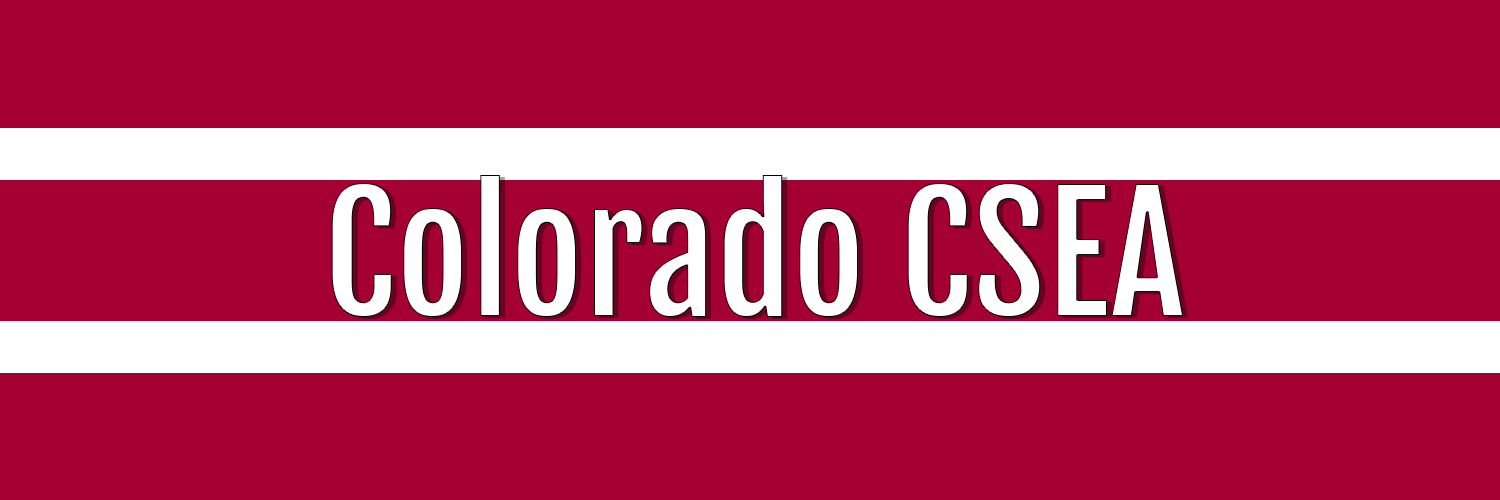To opt out of CSEA dues:
- Enter your information into the form below and click “submit.”
- On the resulting page, click the link to open your customized form. You will also receive an email with a link to your form.
- Print the form. If you check the appropriate box about needing a printed version, we’ll mail you a copy of the form.
- Sign and date the form.
- Mail the completed form to the address at the top of the form. We highly recommend sending it via certified mail.
The Adams 12 Five Star Classified School Employees Association (CSEA) is the designated union for classified employees of Adams 12 Five Star Schools.
For years, public employees in Colorado could be forced to pay union dues or fees as a condition of employment, allowing unions like CSEA to take their members for granted. However, because of the U.S. Supreme Court’s recent decision in Janus v. AFSCME (2018), public employees can no longer be required to financially support a labor union against their will.
The court ruled that the mandatory dues requirement violated workers’ First Amendment rights to freedom of speech and association, and that public employees have the right to choose for themselves whether to pay any union dues or fees.
You can opt out of CSEA dues by filling out the form above, printing it and mailing it to the union.
Frequently Asked Questions
You should receive some acknowledgement of your request from the union within a few weeks.
In many cases, union dues are automatically deducted from employees’ paychecks. Monitor your paychecks to make sure the dues deductions stop. If the deductions continue for more than a couple pay periods after submitting your opt-out request, contact the union.
Finally, keep in mind:
Opting out is your constitutional right. However, unions like CSEA sometimes place restrictions on when they will accept opt-out requests. If the union refuses to immediately cancel dues deductions from your pay, ask them to provide you with written documentation and contact us for assistance.
According to the union’s membership materials from 2018, CSEA dues are at least $200 per year.
Most agreements between public employers and unions in Colorado recognize the union as the “exclusive representative” of all employees covered by the agreement, regardless of their formal union membership status. As a result, the terms of the union’s agreement apply equally to all employees, even if they cease paying dues.
No. Your employer – not the union or the union’s agreement – is ultimately responsible for the terms and conditions of your employment. Your compensation, health benefits, retirement, and anything else provided by the district will remain unchanged if you opt out of CSEA.
While the terms of your employment will remain unchanged, union officials commonly prohibit nonmembers from participating in internal union affairs, such as attending union meetings, voting for union officers or participating in contract ratification votes. You’ll also be ineligible for any special “members only” benefits, such as discounts on additional insurance, scholarship programs, or deals the union has arranged with businesses. You may no longer receive the union newsletter or similar publications.
People have many reasons for not wanting to support the union. Some simply do not believe the services the union provides are worth the dues it charges. Others may find the union’s one-size-fits-all agenda does not serve them well because they are new to the profession, have a specialty that is not acknowledged in bargaining, or they believe their effectiveness is undercompensated. Some resent the union’s role in enabling and defending underperforming employees. Many find the union’s political activity and use of dues to advance partisan causes, candidates and ideology distasteful. Still others believe that union officials are corrupt and unaccountable to their membership.
Unions representing public employees are not governed by the usual consumer protection or anti-trust laws, so abuses are common. Unions can charge whatever they wish. They can spend dues money on anything they want. Often, they do not have to disclose how dues money is spent to members. They can speak for employees without consulting or informing them. They can injure some members’ interests while advancing the interests of others. Unions even have the ability to prevent employees from getting help in their workplace from other sources. They are not governed by any obligation to provide quality service, and almost never have to seek approval of the people they represent in an election to continue as the exclusive representative.
Many unions allow opt outs at various times throughout the year. However, in their union membership contracts, a number of unions have specified certain times during the year (“windows”) stipulating when they will allow or process opt-out requests.
CSEA has specified an opt-out window ranging from December 1st to the 31st. Although this is the timeframe that the union has specified for processing opt-outs, you can certainly fill-out an opt-out request at Opt Out Today any time throughout the year.
CSEA is a private organization with minimal obligations to disclose financial information to members.
However, the IRS requires unions’ 990 tax return to be a public document, and these can be found online at sites like this. CSEA reports using the Employer Identification Number (EIN) 84-0820038.
CSEA (Adam’s CSD)
According to federal filings with the IRS, CSEA collected $219,834 from membership dues in 2019. In that same year, the union reported $697,000 in savings and cash assets.
CSEA’s most recent 990 reports are available here.


